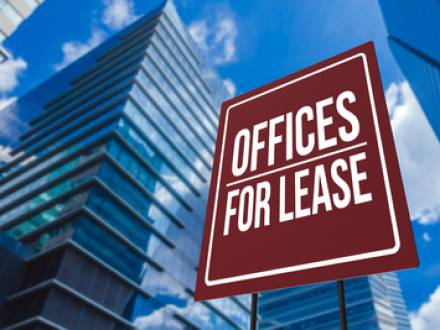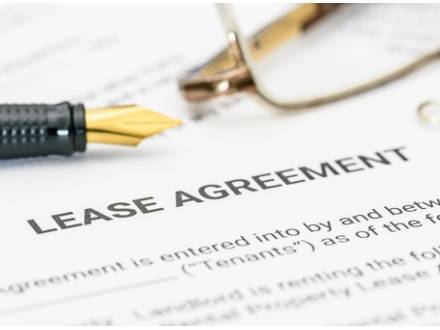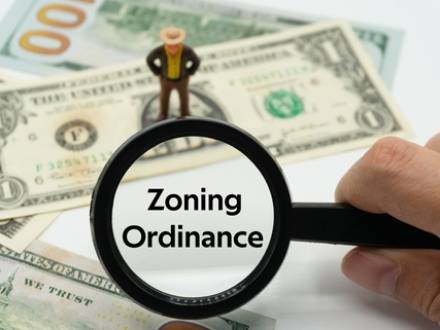Naperville, IL 60563
Recent Blog Posts
Ghost Malls to Growth Hubs: Repurposing Malls in Illinois
 Malls were the heart of American consumer culture for decades, reaching their peak popularity in the 1970s and 1980s. Families dined, shopped, and gathered in malls, and teens congregated. Shopping mall construction in Illinois reached its peak in the mid-1980s. By the late 1990s, a significant decline in mall construction had occurred as consumers began to prefer the convenience and lower prices offered by big-box retailers.
Malls were the heart of American consumer culture for decades, reaching their peak popularity in the 1970s and 1980s. Families dined, shopped, and gathered in malls, and teens congregated. Shopping mall construction in Illinois reached its peak in the mid-1980s. By the late 1990s, a significant decline in mall construction had occurred as consumers began to prefer the convenience and lower prices offered by big-box retailers.
This shift led to the emergence of "dead" or "ghost" malls, which struggled to attract shoppers to underperforming shops. Many ended up shutting their doors for good. Neglect from owners led to building code violations, making this type of commercial real estate difficult to sell and expensive to demolish. Rather than bulldoze these massive commercial properties, Illinois developers began embracing "adaptive reuse." Adaptive reuse involves finding new – and sometimes surprising – ways to breathe life back into ghost malls.
10 Due Diligence Considerations for Buyers in Commercial Real Estate Purchases
 When purchasing commercial property, a buyer must look beyond the bricks and mortar. One of the most important parts of due diligence involves reviewing the existing tenant leases. Leases dictate the property’s income, the landlord’s responsibilities, and potential risks that carry over to the new owner. Overlooking these provisions can mean inheriting expensive financial obligations or problematic restrictions that limit future use of the property.
When purchasing commercial property, a buyer must look beyond the bricks and mortar. One of the most important parts of due diligence involves reviewing the existing tenant leases. Leases dictate the property’s income, the landlord’s responsibilities, and potential risks that carry over to the new owner. Overlooking these provisions can mean inheriting expensive financial obligations or problematic restrictions that limit future use of the property.
If you are considering a purchase of commercial property, working with an Oak Brook commercial real estate lawyer who has both advanced real estate training and over 20 years of legal experience can provide significant protection. Below are 10 critical considerations for reviewing tenant leases. This list is not exhaustive but highlights some of the most common issues buyers face as they try to protect themselves and remain compliant with Illinois contract law.
Triple Net (NNN) vs. Gross Leases: Which Is Better for Business?
 Choosing the right type of commercial lease is one of the most important decisions a business owner will make, especially when the business is first beginning. Throughout DuPage County, commercial property agreements generally fall into two categories: triple net (NNN) leases and gross leases.
Choosing the right type of commercial lease is one of the most important decisions a business owner will make, especially when the business is first beginning. Throughout DuPage County, commercial property agreements generally fall into two categories: triple net (NNN) leases and gross leases.
Each structure has its advantages and potential drawbacks, and understanding the differences is crucial before signing a lease that could affect your bottom line for years to come. At Lindell & Tessitore, P.C., our Naperville, IL commercial real estate attorneys can help you choose the right commercial lease, negotiate favorable terms, and manage any other issues that come up in the course of doing business.
What Is a Triple Net (NNN) Lease?
In a triple net lease, the tenant pays the base rent to the landlord but also assumes responsibility for three major expense categories:
What Is the Role of Discovery in Commercial Litigation?
 If your company becomes involved in a lawsuit, it can help to familiarize yourself with one of the most critical and often least understood aspects of litigation: the discovery process. Whether you are the plaintiff or the defendant, discovery can significantly affect the outcome of your case and the cost of resolving it. Understanding how litigation discovery works and what it means for you can give you an edge in a lawsuit. An experienced Naperville, IL commercial litigation attorney can represent you in your commercial litigation.
If your company becomes involved in a lawsuit, it can help to familiarize yourself with one of the most critical and often least understood aspects of litigation: the discovery process. Whether you are the plaintiff or the defendant, discovery can significantly affect the outcome of your case and the cost of resolving it. Understanding how litigation discovery works and what it means for you can give you an edge in a lawsuit. An experienced Naperville, IL commercial litigation attorney can represent you in your commercial litigation.
What Is Discovery?
Discovery is the formal process whereby each party in a lawsuit extracts information related to the case. This includes documents, emails, financial records, contracts, and even internal communications. It may also involve answering written questions (interrogatories), sitting for depositions (sworn testimony outside of court), or producing electronic data. The purpose of discovery is to ensure both sides have access to the facts before trial. In many cases, particularly in commercial litigation, it is the primary source of evidence in a lawsuit. It is such an important tool that smoking gun documents have won or lost cases.
What Are Your Options for Challenging Illinois Zoning Use Laws?
 Zoning ordinances can have a significant impact on commercial real estate owners and developers. They are intended to ensure that neighborhoods and land are used according to what is best for the community. They also ensure standards are in place for land development. Zoning ordinances determine how land can be used–whether for residential, commercial, or industrial use.
Zoning ordinances can have a significant impact on commercial real estate owners and developers. They are intended to ensure that neighborhoods and land are used according to what is best for the community. They also ensure standards are in place for land development. Zoning ordinances determine how land can be used–whether for residential, commercial, or industrial use.
They can create conflict for a commercial real estate business owner seeking to develop their property to its fullest potential. The good news is that it is possible to challenge zoning decisions. An experienced DuPage County, IL zoning and development attorney can advise you on your options for challenging zoning use ordinances, and represent you throughout the process.
What Are the Options for Challenging Zoning Use Ordinances?
There are several different ways to challenge zoning use laws. If your request is denied, you can appeal that decision.
Common Commercial Real Estate Lease Disputes and Resolutions
 Lease agreements are an integral part of business in the United States. These contracts state the length of the lease and terms that each party, tenant and landlord, must adhere to while it applies. When landlord-tenant disputes arise, either side may need the support of a Naperville, IL commercial real estate dispute attorney to help iron out the issues in accordance with Illinois law.
Lease agreements are an integral part of business in the United States. These contracts state the length of the lease and terms that each party, tenant and landlord, must adhere to while it applies. When landlord-tenant disputes arise, either side may need the support of a Naperville, IL commercial real estate dispute attorney to help iron out the issues in accordance with Illinois law.
Commercial Lease Disputes in Illinois
Disputes between business owners and landlords can occur over almost anything. However, among the most common issues are:
-
Unpaid rent: Failure to pay rent on time can present problems. When a tenant fails to pay rent, the landlord must follow Illinois law concerning notices and eviction.
Do I Need Legal Assistance for a Leaseback Agreement?
 Buying or selling commercial property can be stressful under the best circumstances. When a business needs an influx of cash, one option may be a leaseback agreement. Unlike residential leaseback agreements, commercial leaseback agreements can be used for a long duration, allowing a business owner to continue to use the property while no longer owning it. If you believe a leaseback agreement can potentially remove some of the stress of keeping your business profitable, speak to an experienced Oak Brook, IL real estate lawyer from Lindell & Tessitore, P.C..
Buying or selling commercial property can be stressful under the best circumstances. When a business needs an influx of cash, one option may be a leaseback agreement. Unlike residential leaseback agreements, commercial leaseback agreements can be used for a long duration, allowing a business owner to continue to use the property while no longer owning it. If you believe a leaseback agreement can potentially remove some of the stress of keeping your business profitable, speak to an experienced Oak Brook, IL real estate lawyer from Lindell & Tessitore, P.C..
What Are the Basics of a Commercial Leaseback Agreement?
When real estate that is owned by the seller is sold to another person or entity and then leased back to the first owner for a long duration, this is known as a commercial leaseback agreement. Companies often use leasebacks when they need the cash invested in the property for other purposes but still need the property as an asset to operate their business.
What to Know Before Requesting a Zoning Variance
 Municipalities and counties have zoning ordinances in place that outline what kinds of property can be built in a certain neighborhood or area. Zoning laws exist to ensure that neighborhoods maintain a certain character and to prevent unseemly real estate from being built where it harms the character or living environment of a neighborhood. For example, residents of a residential area with single-family homes might not want a factory or skyscraper in their midst, and zoning ordinances are designed to prevent those types of occurrences.
Municipalities and counties have zoning ordinances in place that outline what kinds of property can be built in a certain neighborhood or area. Zoning laws exist to ensure that neighborhoods maintain a certain character and to prevent unseemly real estate from being built where it harms the character or living environment of a neighborhood. For example, residents of a residential area with single-family homes might not want a factory or skyscraper in their midst, and zoning ordinances are designed to prevent those types of occurrences.
Sometimes, however, it is possible to request a zoning variance. A zoning variance is an exception that can be requested to build property that does not fit the description in the zoning ordinances. An experienced Illinois zoning variance attorney can represent you throughout the complex process of obtaining a zoning variance.
Rent Abatement Clauses for Commercial Tenants
 Commercial leases offer significant room for negotiation between landlords and tenants. One provision that reflects this room to negotiate is the commercial rent abatement clause, an incentive sometimes negotiated by commercial tenants or offered by commercial landlords. Commercial rent abatement clauses temporarily reduce or eliminate rent payments under certain circumstances. An experienced commercial lease attorney in Naperville, IL can negotiate a commercial rent abatement.
Commercial leases offer significant room for negotiation between landlords and tenants. One provision that reflects this room to negotiate is the commercial rent abatement clause, an incentive sometimes negotiated by commercial tenants or offered by commercial landlords. Commercial rent abatement clauses temporarily reduce or eliminate rent payments under certain circumstances. An experienced commercial lease attorney in Naperville, IL can negotiate a commercial rent abatement.
What Is a Commercial Rent Abatement?
Commercial rent abatements reduce or eliminate the tenant’s obligation to pay rent for a period of time.
What Are Common Types of Commercial Rent Abatements?
Rent Abatement During Tenant Improvements
Key Buy-Sell Agreement Clauses
 As a business owner, you are focused on growing the business while juggling day-to-day operations. As you think about your long-term business goals, you should consider having in place a buy-sell agreement. It can protect your company in the event of an unforeseen circumstance. An experienced Naperville, IL business law attorney can advise you on whether your business could benefit from signing a buy-sell agreement.
As a business owner, you are focused on growing the business while juggling day-to-day operations. As you think about your long-term business goals, you should consider having in place a buy-sell agreement. It can protect your company in the event of an unforeseen circumstance. An experienced Naperville, IL business law attorney can advise you on whether your business could benefit from signing a buy-sell agreement.
What is a Buy-Sell agreement?
A buy-sell agreement is a tool of succession planning for your business — planning for what happens to your business in the event you or a co-owner either wants to exit the business or must do so due to an unforeseen circumstance such as incapacitation, death, divorce, or bankruptcy. A buy-sell agreement ensures your business survives changes in management, and it is an especially useful tool in partnerships, limited liability companies, and closely held corporations.




